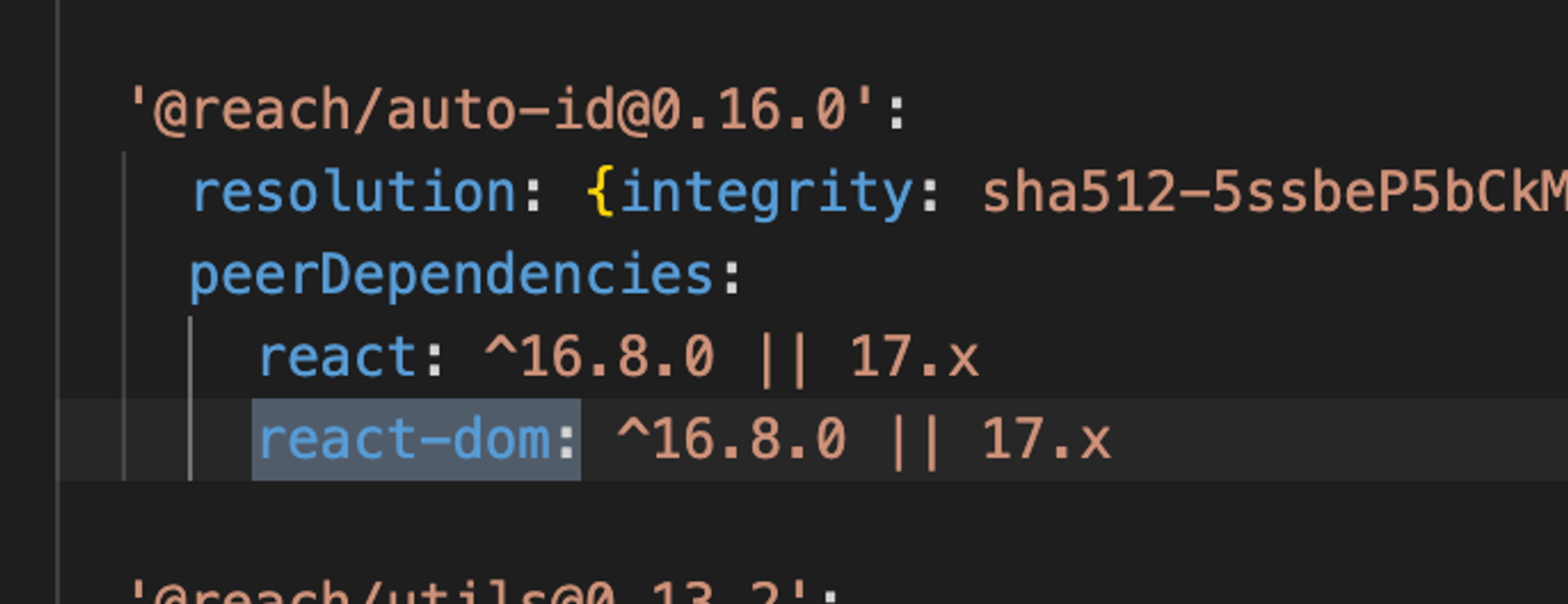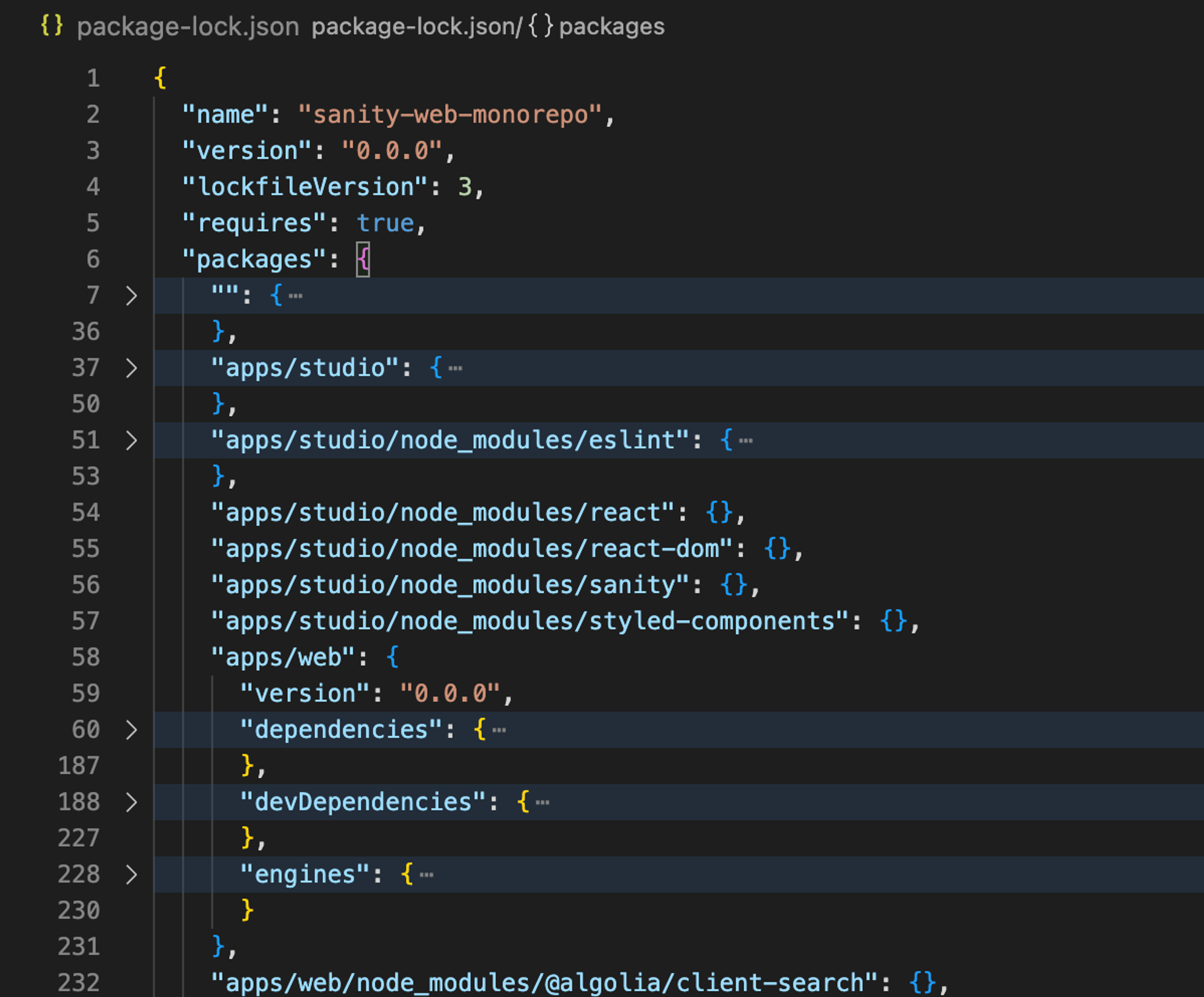Missing or duplicate context error
Experiencing missing or duplicate context errors in Sanity Studio? This issue often arises from having multiple versions of the sanity package installed. Learn why this happens and get tips on cleaning up dependencies or using package manager overrides to resolve the problem in our detailed guide.
The following is an explainer to why you may be seeing duplicate or missing context errors within the Sanity Studio.
Why is this error occuring?
This error occurs when there are multiple versions of the sanity package installed locally. This causes issues because of how React context works. Having multiple versions of a React library that exports a React context can cause issues due to the singleton nature of React contexts.
React contexts are designed to ensure that there is a single provider for a given context that supplies data to multiple consumers within the component tree. When different versions of the same library are used, each version creates its own isolated context instance. This results in consumers and providers from different versions being incompatible with each other, leading to inconsistent data sharing and state management issues across the application.
Why are multiple version of sanity being installed?
There are a few reasons why multiple versions of the sanity package may be installed in a project:
- Transitive peer dependencies: If your project depends on other libraries that also depend on
sanity, (such as sanity plugins) but they require different versions, package managers may install multiple versions to satisfy all the dependencies. This includespeerDependencies. If you're using pnpm, pnpm may even install the same exact version of sanity twice to satisfy different sets of peer dependencies. - Incorrect version specification: If you specify a version of
sanityin your project'spackage.jsonfile that doesn't match the version used by other dependencies, it could lead to multiple versions being installed. - Lock file state: If you have updated the
sanitydependency in yourpackage.jsonfile but haven't regenerated the lock file (pnpm-lock.yaml,package-lock.json, oryarn.lock), the old version might still be installed based on the lock file. There are certain scenarios where the state of your lockfile may result in more than one versions of sanity being installed and simply deleting it and reinstalling may fix the issue.
What can be done to fix this issue?
There are 2 possible solutions for to this.
Solution 1: Clean up dependencies
The first solution to resolve missing context errors is to clean up your project's dependencies. There are lots of scenarios where transitive dependencies (aka the dependencies of your dependencies) can cause a mismatched version.
Because sanity is React-based, you'll want to make sure that versions of sanity, react, react-dom, and similar react libraries are all compatible and consistent. In particular, this means that you should see just one version of sanity installed and the same version of react and react-dom.
At the time of writing, this will mean a sanity ^3 version (e.g. 3.50.0) and a react ^18 version, and a react-dom^18 version (e.g. 18.3.1).
Some quick rules of thumb:
- Ensure you have no deprecated sanity packages installed (e.g.
@sanity/base,@sanity/react-hooks,@sanity/desk-tool) and ensure the rest of any@sanity/package or plugin is at the latest version. The latest version of any package can be determined by runningnpm show <package-name> version. - Ensure you don't see any warnings regarding unmet peer dependencies. Everything should be on the same version of react and react-dom.
- Ensure you aren't using any outdated react libraries that don't support at least React 18. sanity has a peer dependency on at least react
^18.
In my experience, there is no better way to inspect your dependencies than grepping your lockfile ( pnpm-lock.yaml, package-lock.json, or yarn.lock).
pnpm-lock.yaml
pnpm handles peer dependencies somewhat differently than npm. It's not as strict as npm and it tries its best to satisfy all peer dependencies on its own.
Run pnpm install --resolution-only to see any potential issues with peer dependencies. Fixing these issues may result in de-duping sanity.
Protip
You can also try running pnpm dedupe!

If you've seen warnings with unmet peer dependencies, this may result in more than one sanity being installed at once.
When grepping your pnpm-lock.yaml, search for sanity@3. For every set of peer dependencies, pnpm will include sanity and other packages in that set of peer dependencies in a single line.

Notice anything odd? There's an incompatible version of react-dom (17.0.2). The fix here is to search the lockfile for dependencies that are causing react-dom 17 to be installed and used.
You heard that right, the presence of react-dom 17 can even result in the same version of sanity to be installed more than once.
After searching for react-dom:, the culprit was found: An outdated dependency to @reach/auto-id which did not allow a peer dependency of react-dom 18.

Further following this trail lead to finding an old version of @sanity/desk-tool was installed.

This led to the discovery of other legacy packages being installed. After removing @sanity/desk-tool and @sanity/react-hooks from all package.jsons the context issue was resolved.
package-lock.json
npm's package-lock.json lockfileVersion 3 file is relatively straightforward lockfile.

Top-level is the lockfileVersion followed by a packages key that contains a flat list of all the dependencies installed in project. Note for monorepos that this lockfile should contain all dependencies for the root package and all of the subpackages as well.
In this lockfile, search for node_modules/sanity", react, and react-dom.

Ideally you'd see just one of each. If there are more than one and one of those versions mismatch, look for a package that would depend on the mismatched version.
yarn.lock
The yarn lock file is similar npm's native package-lock.json expect it's in yaml. See this article for more information on yarn lock files.
Solution 2: Override the sanity dependency
If cleaning up dependencies manually doesn't resolve the issue, you can force your package manager to use a specific version of sanity across all dependencies. You may want to do this anyway in order to prevent this issue from occuring in the future.
Doing this ensures that only one version is installed, even if different dependencies specify conflicting versions.
npm overrides
NPM supports an overrides key in the top-level of package.json.Wherever you see the sanity dependency in your package.json, add the following to your package.json.
{
"name": "your-studio",
"version": "1.0.0",
"description": "...",
"dependencies": {
"sanity": "^3.50.0"
},
"overrides": { "sanity": "$sanity" }
}The $sanity value makes it reference the version listed above in your package.json.
If working in a monorepo, we recommend installing sanity at the root workspace.
pnpm overrides
pnpm has the same thing as NPM overrides but under a pnpm key.
{
"name": "your-studio",
"version": "1.0.0",
"description": "...",
"dependencies": {
"sanity": "^3.50.0"
},
"pnpm": {
"overrides": { "sanity": "$sanity" }
}
}Yarn resolutions
Yarn allows you to force a particular dependency through resolutions.
{
"name": "your-studio",
"version": "1.0.0",
"description": "...",
"dependencies": {
"sanity": "^3.50.0"
},
"resolutions": {
"sanity": "^3.50.0"
}
}Appendix: What's a Lockfile?
A lockfile is a file that records the exact versions of all packages installed in a project, including transitive dependencies. It serves as a snapshot of the project's dependency tree at a given point in time.
Lockfiles are generated automatically by package managers like pnpm, npm, and yarn when you run the install command. They ensure reproducible builds by locking the versions of all dependencies, so that everyone working on the project uses the same versions.
Was this page helpful?